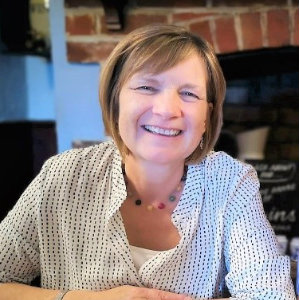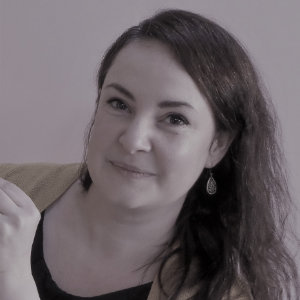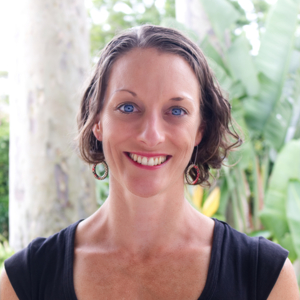It is widely acknowledged that face to face teaching using role-play, feedback & re-rehearsal is the gold standard for clinical communication skills (CCS) teaching. However, the Covid-19 pandemic has prompted health professional educators to explore innovative online approaches to address ongoing learners’ needs. For many teachers this is a wholly new approach and they may not be sure how to adapt previous in-person sessions to a virtual context. Others may have started experimenting with different online methods and are looking to identify ways to consolidate progress and identify next steps.
EACH: International Association of Communication in Healthcare is offering a series of three 3-hour workshops providing the opportunity to explore the challenges and rewards of teaching clinical communication skills online. Each workshop in this new series covers different aspects of teaching and learning and can either be attended as a separate event or as a complete set of three workshops.
| Wednesday 10 March 2021 | 08:00 – 11:00 GMT | Workshop 1a: ‘Brave New World’ |
| Wednesday10 March 2021 | 14:00 – 17:00 GMT | Workshop 1b: ‘Brave New World’ |
| Wednesday 28 April 2021 | 14:00 – 17:00 GMT | Workshop 2: ‘Building your Toolkit’ |
| Wednesday 26 May | 14:00 – 17:00 GMT | Workshop 3: ‘Train the Trainers’ – Understanding the needs of Learners, Teachers and Simulated Patients involved in online teaching |
Workshop 1: „Schöne neue Welt“
Der erste Workshop der EACH-Online-Reihe konzentriert sich auf die zentralen, evidenzbasierten Komponenten der erfahrungsorientierten CCS-Ausbildung und darauf, wie diese mithilfe von Videokonferenzplattformen sicher und effektiv auf den Online-Unterricht übertragen werden können.
Dieser Workshop umfasst Demonstrationen, Erfahrungsübungen und Diskussionen über die folgenden zentralen Lehrmethoden:
- Aufbau von Gruppendynamik in einem virtuellen Klassenzimmer
- Ermöglichen eines sicheren und effektiven Rollenspiels mit simulierten Patienten online
- Maximierung der Wirkung von Online-Feedback
Die Teilnehmer haben die Möglichkeit zu überlegen, wie Online-Tools und -Techniken genutzt werden können, um den Online-Unterricht in erfahrungsorientierten klinischen Kommunikationsfähigkeiten in ihrer eigenen Einrichtung zu verbessern. Darüber hinaus bietet sich Ihnen die wertvolle Gelegenheit, sich mit Ihren Kollegen in anderen Institutionen zu vernetzen und gleichzeitig Ihre eigenen Erfahrungen mit dem Online-Lernen auszutauschen, unabhängig davon, ob Sie gerade über die Umstellung auf Online-Lernen nachdenken oder diese Ansätze schon seit einiger Zeit nutzen.
Bitte beachten Sie, dass wir während dieser Sitzungen Schulungen mit Zoom durchführen, viele der Prinzipien und Ansätze jedoch auf andere Plattformen übertragbar sind.
Workshop 2: ‘Building your Toolkit’
Erkundung zusätzlicher Ansätze für den Online-Unterricht.
In diesem Workshop werden komplementäre Ansätze zum Rollenspiel mit simulierten Patienten untersucht, dem Grundpfeiler des Erfahrungsunterrichts. Die in diesem Workshop behandelten Ansätze zielen darauf ab, Abwechslung zu bieten und das Engagement der Studierenden im Lernprozess zu erhöhen.
Dieser Workshop umfasst Demonstrationen, Erfahrungsübungen und Diskussionen zu den folgenden Aspekten der Vermittlung von Kommunikationsfähigkeiten:
-Using pre-recorded video clips to teach clinical communication skills online
- Peer-Rollenspiel als Unterrichtsmethode
- Erfahrungsübungen zur Abwechslung des Lernens
- Synchrone erfahrungsbasierte Online-Lernzeit am effektivsten nutzen
Workshop 3: ‘Train the Trainers’ – Understanding the needs of Learners, Teachers and Simulated patients involved in online teaching
Ziel dieses letzten Workshops der Reihe ist es, Lehrkräfte mit den notwendigen Fähigkeiten auszustatten, um andere bei der Vermittlung klinischer Kommunikationsfähigkeiten online zu schulen und zu unterstützen.
In diesem Workshop werden aktuelle Umfrageergebnisse und gemeinsame Erfahrungen ausgetauscht, um zu überlegen, wie Tutoren, Studenten und simulierte Patienten am besten vorbereitet werden können, um die Wirkung des virtuellen Klassenzimmers für klinische Kommunikationsfähigkeiten zu maximieren. Dieser Workshop umfasst:
- Die studentische Perspektive – Was wissen wir bisher? Welche Aspekte der Online-Vermittlung klinischer Kommunikationsfähigkeiten werden von Studierenden geschätzt? Was hilft ihnen, sich zu engagieren, und was schaltet sie aus?
- Die Perspektive des Lehrers – Wie kann ich andere darauf vorbereiten, klinische Kommunikationsfähigkeiten online zu vermitteln?
- How do I begin to develop virtual sessions? Considering the required changes to Teaching plans, Faculty training and Role-play scenarios etc.
- Die Perspektive des Patienten – Eine glaubwürdige Leistung erbringen, die Herausforderungen der Rolle – von der Hüfte aufwärts?
Moderatoren
Sandra Winterburn
Akademischer Leiter für den Lehrplan für klinische Kommunikation, Norwich Medical School
Sandra arbeitet als außerordentliche Professorin an der Norwich Medical School, wo sie die akademische Leitung für den Lehrplan für klinische Kommunikation übernimmt. Sie hat einen Hintergrund in der Krankenpflege und ist seit mehr als 15 Jahren aktiv an der Vermittlung von Kommunikation zwischen Arzt und Patient für eine Reihe von Berufsgruppen beteiligt, sowohl auf Bachelor- als auch auf Postgraduiertenebene.
Sandra ist Co-Vorsitzende des Lehrausschusses (tEACH) innerhalb von EACH und hat ein besonderes Interesse an:
- Experimentelle Unterrichtsmethoden für kleine Gruppen (einschließlich Online-Bereitstellung)
- Train-the-Trainers-Initiativen
- Lehrplangestaltung für die Kommunikation im Gesundheitswesen
Marcy Rosenbaum
Carver College of Medicine der Universität Iowa, USA
Marcy Rosenbaum, PhD, is Professor of Family Medicine at the University of Iowa Carver College of Medicine in the US. She is currently the President of EACH and former co-chair of tEACH, the teaching committee of EACH. She has conducted research on and taught about clinical communication and medical education for over 30 years with a particular emphasis on workplace based communication learning.
Laura Blackburn
Occupational Health Physician, Lecturer and Coach, East of England
Dr Laura Blackburn is an Occupational Health Physician, Lecturer and Coach based in the East of England. With a strong interest in learner engagement and the use of technology in teaching, the last 12 months have proved the opportunity to accelerate the development of creative and innovative approaches to meet learner’s changing needs. One such opportunity has been in working with the Norwich Medical School Consultations Skills Team in the delivery of undergraduate consultation skills training and also in developing and delivering postgraduates training nationally.
Although a coaching approach weaves throughout Laura’s practice as a Clinician and Educator, a particular focus is coaching professionals looking to change careers or flourish during periods of challenge and transition. This includes working with national organisations in establishing coaching schemes and meeting their development, delivery and training needs.
Kim Taylor
Simulierter Patient, Training klinischer Kommunikationsfähigkeiten
Kim Taylor’s work as a simulated patient in the field of Clinical Communication Skills training has led to workshops and courses with doctors and healthcare professionals throughout the UK and Internationally from Norway to Sri Lanka, Russia to South Africa.
At undergraduate level, Kim works in experiential sessions with medical students at the University of Cambridge.
With a special interest in the development of training materials, Kim is currently consulting on a number of projects for the University including a review of the simulated patient training programme and the creation of resources to support the Clinical School’s online experiential CCS sessions.
Conor Gilligan
University of Newcastle, Australia
Conor is Associate Professor in Health Behaviour Science at the University of Newcastle, and leads the Discipline of Health Behaviour Science in designing and implementing the clinical communication skills curriculum in the Joint Medical Program (Universities of Newcastle and New England). Conor facilitates small group learning with undergraduate students across all stages of training, and is passionate about contributing to the development of a workforce of patient centred clinicians who communicate effectively with patients and with each other, as well as about upskilling clinicians to contribute to students’ learning in their clinical supervision roles. Conor is an active teacher, researcher, and curriculum developer in this space.





